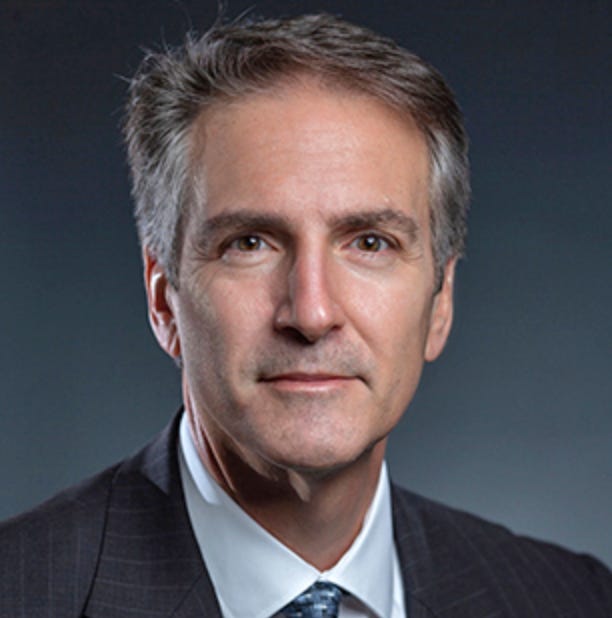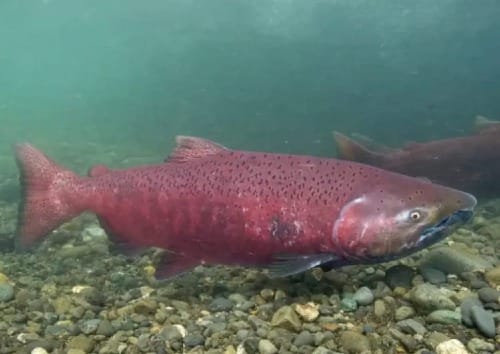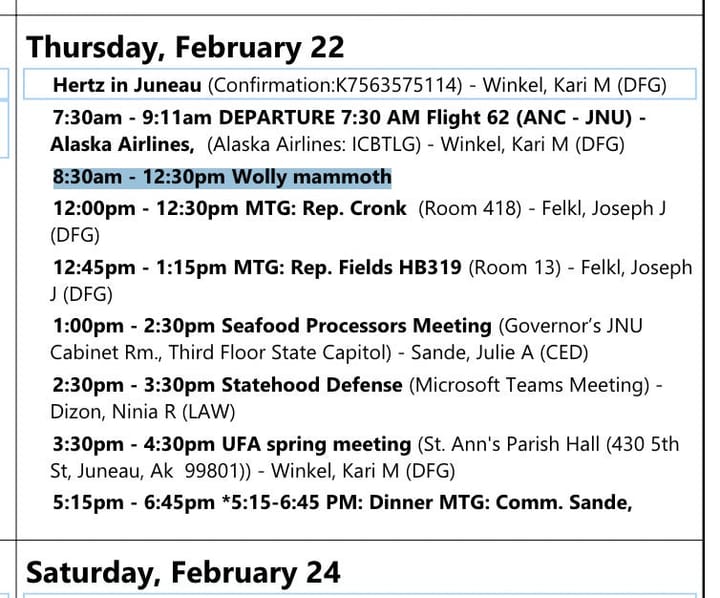Under attack on many fronts, AIDEA now faces a leadership void.
The state agency responsible for advancing the Ambler road and oil development in the Arctic Refuge has seen dozens of employees exit amid escalating attacks from conservation groups.

The last time I saw Alan Weitzner, the head of the state agency responsible for some of the most polarizing infrastructure projects in Alaska, he and his spokeswoman were staffing a booth at a mining conference in Anchorage.
No one had stopped by to chat; when I walked up and introduced myself as a reporter who covers Alaska’s environment, Weitzner let his spokeswoman do the talking.
Northern Journal is sustained by readers. Stay current by signing up for the free newsletter, and support this project with a voluntary paid subscription. Start the process below.
I’ve been thinking about this moment since earlier this month, when Weitzner announced his resignation after two years leading the Alaska Industrial Development and Export Authority, or AIDEA — an obscure-sounding state-owned corporation that elected officials have charged with developing projects that they see as essential to Alaska’s economic fortunes.
Current projects in AIDEA’s portfolio include:
• the Ambler road, which would cross 200 miles of tundra, rivers and national park land in Northwest Alaska to access mineral deposits that would likely be extracted by large, hard rock mines.
• the proposed West Susitna road project, which could also lead to the construction of large mines and development on undisturbed land on the west side of the Susitna River, the huge waterway that drains into Cook Inlet outside Anchorage.
• oil development in the Arctic National Wildlife Refuge, where AIDEA is the only remaining entity that holds active fossil fuel leases after buying them in a sale in the final days of the Trump administration. (The private companies that initially bought leases have since returned them to the federal government.)
All of these initiatives have provoked major campaigns to stop them — locally, nationally, legislatively and in the courts — and direct attacks on AIDEA itself. Those came most recently in the form of an economic report from conservation groups that said the agency’s bad investments had cost the state $10 billion over four decades.
Opponents have filed lawsuits, lobbied lawmakers and engaged in public advocacy to stop AIDEA’s projects. These groups are sophisticated, with veteran environmental organizers and attorneys making coordinated decisions: In the Ambler road litigation alone, for example, 11 environmental groups, represented by a single set of Alaska-based and Colorado-based attorneys, are acting as plaintiffs. A second, parallel lawsuit was filed by a group of tribes.
The people fighting AIDEA’s efforts are personally invested in their causes — they’re tribal members with fears about the integrity of their ancestral lands, or settlers in Alaska who have developed deep appreciation for the state’s environment.
Compare this with AIDEA, where the turnover seems nearly constant and some of the highest-ranking employees have short histories in the state.
More than 30 people who worked at AIDEA, or jointly for AIDEA and its sister agency, the Alaska Energy Authority, have quit or retired in the past two years. (AIDEA, for context, has fewer than 100 total employees, according to budget documents.)
AIDEA’s chief investment officer, Morgan Neff, who’s held his job for less than two years and earns $200,000, recently applied to be the new head of the Alaska Permanent Fund Corp. AIDEA’s longtime spokesman was laid off in 2020 and is now suing the agency for employment discrimination.
And now Weitzner — who, according to his LinkedIn profile, moved to Alaska from Texas four years ago — will be gone in early December.

Back to my brief encounter with Weitzner this month. The reason his silence at the booth was so noteworthy is that you’d think he would have a lot to say: All of these fights over his agency’s projects are playing out in the public sphere — where, quite often, AIDEA has appeared outspent and outmaneuvered.
That’s a problem for AIDEA, since the agency needs public opinion on its side if it expects that the Alaska Legislature will agree to spend the public money that will likely be needed if any of these three projects is ever built.
Weitzner worked in infrastructure and finance in Texas, Switzerland and Hong Kong before starting his job at AIDEA. Within Alaska state government, he was known more for his business and financial acumen than his facility working with elected officials or reporters.
But those skills now appear essential for the head of an agency that’s being increasingly targeted for political scrutiny — if that agency is actually going to make any progress pushing its agenda forward.
“Why have we somehow accepted that AIDEA should be subject to less review than any other Alaska entity?” Emily Anderson, the Alaska director of the Wild Salmon Center, said in a prepared statement that conservation groups released with their critical economic report. She added: “It’s time for Alaska’s elected officials to take a long, hard look at just why Alaska is subsidizing foreign companies at Alaskans’ expense — and losing Alaskans billions of dollars in the process.”
There are at least cogent arguments that can be made on behalf of AIDEA’s projects — the need for minerals to fuel the global transition to electrification, tighter oil and gas markets amid the Ukraine war, a moribund state economy.
But the challenge for AIDEA’s board of directors, which will supervise the search for Weitzner’s replacement, is finding someone who can capably make those arguments to the right audiences here in Alaska, in a way that acknowledges the state’s unique and sometimes fraught relationship between subsistence, resource extraction and outdoor recreation.
All seven members of AIDEA’s business-oriented, conservative-leaning board members have been appointed by GOP Gov. Mike Dunleavy, whose administration has worked to advance the two road projects and oil development in the Arctic Refuge.
But if the board can’t find someone up for the job, and who will bring more stability to the organization, it’s hard to imagine AIDEA fending off the critics of these projects for much longer.



